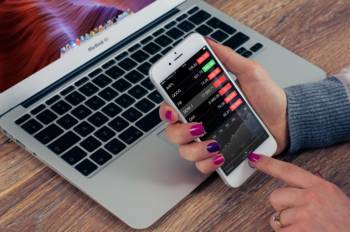2019 showed us great gains in the stock market. That does not exactly take away the possibility of a recession. While the murmur in the market about a looming recession has died down. As trade spat with China seems to be being resolved. While there is a new tension in the middle east and the oil price is skyrocketing. But that will come down eventually anyway. And the trade wars will eventually be resolved too. But, what about all the debts the US consumer has been accumulating? And the corporates or the US government have a bloated balance sheet. With or without all these clouds we need an emergency fund.
The point I am trying to make is a recession or a slowdown is coming sooner or later. As employment has risen so much lately there is only one way the employment can go that is downwards. And we all need to get ready for that. I posted before how we can prepare for the upcoming recession and you can read it here.
Now, this blog post is not going to be about recession but about how to store the emergency fund, and I will not tell you to stuff ash under the mattress or in a checking or savings account that does not make you anything. My intention is to tell you what I personally do. As fed has cut the rate and the rate is sliding towards zero again. And our accounts are not really rewarding us with anything. My Chase savings account has a yield of 0.01%. I am sure you are looking for better options too. And I have 3 options that I personally use. One more thing, I cannot really tell you how you can save money without knowing you personally, but once you can save money you should put your first $1000 in DCU savings account.
Highest Dividend Yield In Savings Account
I opened an account in DCU for getting a Car loan. But, then I found out their savings account offers 6% interest on the first $1000. Which is really lucrative. Keeping in mind that we need emergency funds readily available and we want to earn some interest in that, DCU saving is a great starter. So, if you store $100 – $1000 you will earn 6% on that. But, any amount after that will make way less, I believe something like 0.25%. For example, if your account balance is $1,100, you will earn 6% on the first $1000 and then 0.25% on the other $100.
DCU is a credit union and they are based in MA, so you will not find their ATMs everywhere. But, they reimburse ATM charges, so it will be perfect for an emergency fund. You won’t touch it too often.
Varo Savings Account
Varo is an online bank. They offer checking and savings accounts. You will a debit card and no checks. Anyway, right now Varo is offering 1.92% on a savings account. There is no limit like DCU. You can keep $100 or $10000, you will earn 1.92% interest on that amount. So, Varo does not offer so high interest on the first $1000 as DCU does. And the ATM charges are not reimbursed as DCU does.
Varo does not have any physical location, you need to download the app and sign up. If the Fed cuts the rate further, Varo will have to reduce the interest they are offering now. But, the thing to remember all other banks will have to do the same. For now, this is offering a great rate on savings.
Muni Bonds is another great option to park Emergency Fund
If you are familiar with bonds then you know they tend to be less volatile. Although, this is not exactly a safe haven. And your capital might see a loss if the Fed for some reason decides to increase the rate, which is highly unlikely at this moment. In fact if the economy slows down, the FED will cut rates and the muni bonds will gain value. You do not pay any tax on muni bonds, which is a plus. The interest you earn from DCU or Varo is taxable. But, if you sign up to Robinhood and buy muni bond ETF for no commission the yield you will earn will be tax-free. This is a strategy o hedge against the FEDs rate cuts in the future. If you are unsure that FED is going to cut rates, then do not do this.

Remember, the bond is not risk-free. But an ETF has less risk. More importantly, in the FED cuts rate, Varo will reduce the interest they offer, but your bond ETF will go up in price and the dividend will always remain tax-free as long as it is coming from muni bonds. So, sign up for Robinhood and buy a municipal bond ETF. Make sure the expense ratio is low. Look for Fidelity or vanguard, usually, they charge a really low expense ratio on their ETFs.
Let us start with where you should not keep your emergency fund money. Not in stocks or CDs. The assumption is you need this money during emergency, and you want to access it quickly. Stocks may go down in value and you might need to take a capital loss.
So, keep your money in a high yielding savings account as I have suggested above.
Try to save at least 3 months worth living expenses. A savings worth 6 months worth living expenses would be great. Remember, you will have first observe your expenses carefully, add them up, then save the amount. And when needed you will have to stick to the budget.
You should not consider putting your emergency fund in stocks as I told you before. But, there is a possibility that the FED will cut interest further as the economy slows down. In that case, the savings account will offer less interest. But bonds will gain price. So you can consider investing in muni bond EFTs. They are less risky and offer you tax-free interest.

